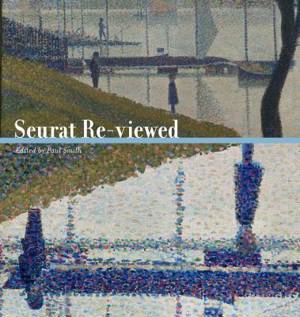
- Afhalen na 1 uur in een winkel met voorraad
- Gratis thuislevering in België vanaf € 30
- Ruim aanbod met 7 miljoen producten
- Afhalen na 1 uur in een winkel met voorraad
- Gratis thuislevering in België vanaf € 30
- Ruim aanbod met 7 miljoen producten
Omschrijving
Georges Seurat is best known as the painter of A Sunday on the Grande Jatte--1884, one of the most recognizable and reproduced works of art in the world. In recent years the painting has been the subject of a highly successful exhibition, the inspiration for a Broadway musical (by Stephen Sondheim), and the subject of a television program. The Grande Jatte has achieved this iconic status for a number of reasons, but is unknown to most people except as a simulacrum. The Grande Jatte is also plagued by the long-standing cliché that it embodies a "scientific" way of painting. The painting is much more complex, however; so is Seurat's body of work as a whole. In this collection of essays, Paul Smith has assembled a broader view of Seurat's oeuvre. Seurat Re-viewed touches on its engagement with society, gender, politics, new artists' materials, and developments in art theory.
Individual essays focus on the many facets of Seurat's work and its context, including its use of color and its debt to color theory; its exploitation of different drawing media; its connection to the work of the artist's contemporaries, including the poets Jules Laforgue and Stéphane Mallarmé; and its concern with nineteenth-century social issues. The contributions also show important links among the Grande Jatte, literary Symbolism, and the development of future Modernist practices. The book amounts to a major reevaluation of Seurat's art in the culture of the late nineteenth century.
In addition to the editor, the contributors are Anthea Callen, S. Hollis Clayson, Jonathan Crary, Joan U. Halperin, Richard Hobbs, John House, Brendan Prendeville, Georges Roque, and Richard Shiff.
Specificaties
Betrokkenen
- Uitgeverij:
Inhoud
- Aantal bladzijden:
- 288
- Taal:
- Engels
- Reeks:
- Reeksnummer:
- nr. 14
Eigenschappen
- Productcode (EAN):
- 9780271035451
- Verschijningsdatum:
- 15/04/2010
- Uitvoering:
- Paperback
- Formaat:
- Trade paperback (VS)
- Afmetingen:
- 231 mm x 246 mm
- Gewicht:
- 1111 g

Alleen bij Standaard Boekhandel
Beoordelingen
We publiceren alleen reviews die voldoen aan de voorwaarden voor reviews. Bekijk onze voorwaarden voor reviews.










